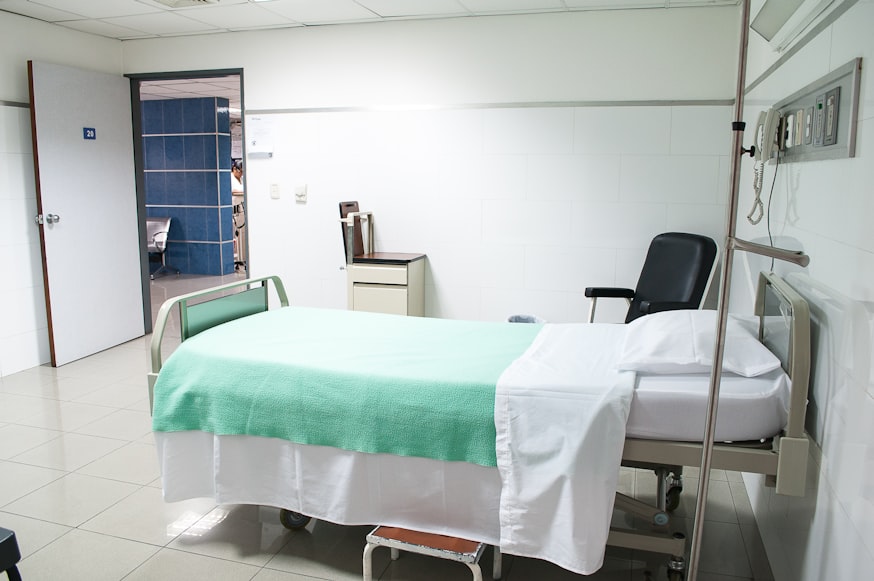Feline Health Checkups: A Comprehensive Guide

Introduction
Regular health checkups are crucial for maintaining the well-being of your feline companion. These appointments provide veterinarians with an opportunity to thoroughly assess your cat’s health, identify potential issues early, and recommend appropriate preventive measures. This comprehensive guide will provide you with detailed information about feline health checkups, including their importance, what to expect during a visit, and the recommended frequency of appointments.
Importance of Feline Health Checkups
- Early Detection of Health Issues: Health checkups allow veterinarians to identify subtle signs of underlying health conditions, such as heart disease, kidney disease, and cancer. Early detection and diagnosis can significantly improve treatment outcomes and increase your cat’s chances of a long and healthy life.
- Preventive Care: Veterinarians can provide advice on preventive measures, such as vaccinations, deworming, and nutritional counseling. These measures help protect your cat from preventable diseases and promote optimal health.
- Weight Management: Obesity is a common problem in cats, which can lead to a range of health complications. Health checkups include weight checks and advice on appropriate weight loss strategies.
- Dental Hygiene: Regular dental checkups are essential for preventing dental disease, which can cause pain, discomfort, and other health issues. Veterinarians can clean your cat’s teeth, remove plaque and tartar, and recommend home dental care routines.
- Senior Cat Care: As cats age, their health needs change. Senior health checkups include additional assessments, such as blood pressure monitoring and arthritis screening, to ensure that older cats receive the care they need.
What to Expect During a Health Checkup
A typical feline health checkup includes the following components:
- Physical Examination: A thorough physical examination involves inspecting your cat’s ears, eyes, mouth, skin, and coat. The veterinarian will also palpate your cat’s abdomen to check for any abnormalities.
- Vaccinations: Vaccinations are an essential part of preventive care for cats. During a health checkup, the veterinarian will assess your cat’s vaccination status and recommend any necessary updates.
- Bloodwork and Urine Analysis: Blood and urine tests can provide valuable information about your cat’s internal health. They can detect imbalances in electrolytes, liver function, kidney function, and glucose levels.
- Fecal Exam: A fecal exam can identify intestinal parasites, which can cause gastrointestinal issues and other health problems.
- Weight Management: The veterinarian will weigh your cat and discuss appropriate weight management strategies if necessary.
- Dental Examination: The veterinarian will examine your cat’s teeth for signs of decay, gum disease, and other dental issues.
- Heart and Lung Examination: The veterinarian will listen to your cat’s heart and lungs for any murmurs or other abnormalities.
- Nutritional Counseling: The veterinarian can provide advice on appropriate nutrition for your cat based on factors such as age, activity level, and any underlying health conditions.
Frequency of Health Checkups
The recommended frequency of feline health checkups varies depending on your cat’s age, overall health, and specific health conditions.
- Kittens: Kittens should receive monthly health checkups until they are fully vaccinated and spayed or neutered.
- Adult Cats: Adult cats should receive annual health checkups.
- Senior Cats: Senior cats (over 7 years old) should receive more frequent health checkups, typically every 6-9 months.
- Cats with Chronic Conditions: Cats with chronic health conditions, such as diabetes or heart disease, may require more frequent health checkups as determined by the veterinarian.
Conclusion
Regular feline health checkups are an essential aspect of responsible pet ownership. By scheduling regular appointments with your veterinarian, you can help ensure that your cat remains healthy, happy, and by your side for many years to come. Remember to discuss the specific health needs of your cat with your veterinarian to determine the optimal frequency of checkups. A proactive approach to feline health care can significantly improve your cat’s quality of life and extend its lifespan.
Physical Examination

Regular veterinary checkups are essential for maintaining your feline companion’s optimal health and well-being. During these checkups, your veterinarian will perform a comprehensive physical examination to assess various aspects of your cat’s health.
1. Inspection
- Coat and Skin: The veterinarian will inspect your cat’s coat for any abnormalities such as matting, dryness, parasites, or lesions. The skin will be checked for any signs of irritation, redness, or infections.
- Eyes: The eyes will be examined for any discharge, redness, or cloudiness. The pupils and lenses will be assessed for any abnormalities.
- Ears: The ears will be checked for any discharge, inflammation, or parasites. The veterinarian will also feel the bases of the ears to determine if there is any tenderness indicating an infection.
2. Auscultation
- Heart: The veterinarian will use a stethoscope to listen to your cat’s heart for any murmurs, arrhythmias, or other abnormalities.
- Lungs: The lungs will be auscultated to assess for any wheezing, crackles, or other respiratory problems.
3. Palpation
- Abdomen: The veterinarian will gently palpate your cat’s abdomen to check for any pain, masses, or distensions. This examination can detect any abnormalities in the organs, such as the liver, kidneys, or intestines.
- Lymph Nodes: The veterinarian will palpate your cat’s lymph nodes, which are small glands located throughout the body. Swollen or tender lymph nodes can indicate an infection or other health issue.
Additional Examination Techniques
In addition to the physical examination described above, your veterinarian may also perform other techniques to assess your cat’s health:
- Temperature Measurement: Your cat’s temperature will be measured to identify any fever or hypothermia.
- Weight and Body Condition Score: Your cat will be weighed, and a body condition score will be assigned to assess their overall health and nutritional status.
- Dental Examination: The veterinarian will examine your cat’s mouth for any signs of dental disease, such as cavities, tartar, or gingivitis.
Regular veterinary checkups and thorough physical examinations are crucial for detecting and addressing health issues in cats. By monitoring your cat’s physical health, your veterinarian can help prevent or manage disease, ensure their well-being, and provide them with a long and healthy life.
History Taking

As a responsible pet owner, it’s imperative to ensure your feline companion receives regular health checkups. A comprehensive examination involves more than just a physical assessment; it also includes a detailed history taking. This crucial step helps veterinarians gather essential information that aids in accurate diagnosis and treatment.
Gathering Information on Diet, Exercise, and Lifestyle
A thorough history taking includes a comprehensive review of your cat’s daily routine, including:
- Diet: Ask about the type, frequency, and amount of food your cat consumes. Note any recent changes in appetite or eating habits.
- Exercise: Inquire about your cat’s activity level, including playtime, outdoor access, and any restrictions due to age or health conditions.
- Lifestyle: Discuss your cat’s living environment, including any changes in routine, new pets in the household, or stressful events.
This information provides valuable insights into your cat’s overall well-being and can identify potential risk factors associated with certain health conditions.
Reviewing Previous Medical Records and Vaccinations
During history taking, your veterinarian will review your cat’s previous medical records, including:
- Medical history: Note any previous illnesses, surgeries, or treatments your cat has received.
- Vaccinations: Ensure that your cat is up-to-date on all necessary vaccinations.
This information helps establish a baseline for your cat’s health and identifies any underlying conditions that may require further investigation.
Importance of Accurate Information
Providing accurate and detailed information during history taking is crucial for several reasons:
- Early detection: It helps veterinarians detect potential health issues early on, allowing for prompt intervention and better treatment outcomes.
- Tailored treatment plans: Based on the information gathered, veterinarians can develop individualized treatment plans that address your cat’s specific needs.
- Monitoring progress: By comparing history taking data over time, veterinarians can track your cat’s progress and make necessary adjustments to its care.
Conclusion
History taking is an essential component of feline health checkups. By gathering detailed information on your cat’s diet, exercise, lifestyle, and medical history, veterinarians can better understand its unique health needs. Providing accurate and complete information will help ensure that your furry friend receives the best possible care and lives a long and healthy life.
Dental Examination

Regular feline health checkups play a vital role in ensuring your beloved companion’s well-being. Among the essential components of these checkups is a thorough dental examination.
Assessment of Teeth and Gums
During the dental examination, your veterinarian will carefully assess your cat’s teeth and gums for any abnormalities. This includes checking for:
- Dental plaque: A sticky film that forms on the teeth and contains bacteria.
- Dental calculus (tartar): Hardened mineral deposits that adhere to the teeth and can irritate the gums.
- Gingivitis: Inflammation of the gums, often caused by excessive plaque and tartar buildup.
- Periodontal disease: A serious infection that affects the tissues supporting the teeth, including the gums, jawbone, and periodontal ligament.
Screening for Periodontal Disease
Periodontal disease is one of the most common health issues affecting cats. Its symptoms can include:
- Red, swollen, or bleeding gums
- Receding gums, exposing the roots of the teeth
- Bad breath
- Difficulty chewing or eating
Early detection and treatment are crucial for managing periodontal disease and preventing its progression. Your veterinarian will use a periodontal probe to measure the depth of the pockets around your cat’s teeth. Increased pocket depth can indicate the presence of periodontal disease.
Benefits of Regular Dental Examinations
Regular dental examinations offer numerous benefits for your feline companion, including:
- Early detection and treatment of dental disease, preventing pain and discomfort.
- Maintenance of oral hygiene, reducing the risk of plaque and tartar buildup.
- Prevention of periodontal disease, which can lead to serious health problems.
- Improved overall health and well-being.
Frequency of Dental Checkups
The frequency of dental checkups for cats varies depending on individual factors such as age, diet, and oral health history. However, yearly or semi-annual dental examinations are generally recommended.
Home Dental Care for Cats
While regular professional dental cleanings are essential, maintaining good oral hygiene at home can also contribute to your cat’s dental health.
- Brush your cat’s teeth regularly: Use a cat-specific toothbrush and toothpaste.
- Provide dental treats and toys: Dental treats and toys can help remove plaque and stimulate saliva production.
- Feed a high-quality diet: Some commercial cat foods are formulated to promote dental health.
By incorporating a comprehensive dental examination into your feline health checkups, you can help your cat maintain a healthy smile and enjoy a long and healthy life.
Weight and Body Condition Assessment

Regular weight and body condition assessment are crucial aspects of feline health checkups. Monitoring these parameters helps identify potential health issues, ensure optimal nutrition, and maintain the well-being of your cat.
Determining if the Cat is Overweight or Underweight
Veterinarians use a body condition score (BCS) system to assess a cat’s weight and body condition. The BCS is a numerical scale that ranges from 1 (emaciated) to 9 (obese).
- Overweight (BCS 6-9): Cats with excess body fat may have a rounded abdomen, a thick chest, and difficulty reaching their tailbone. They are at increased risk for health problems such as diabetes, heart disease, and arthritis.
- Underweight (BCS 1-4): Cats that are undernourished or have a medical condition may have a sunken abdomen, prominent ribs, and a dull coat. They are prone to weakness, lethargy, and nutritional deficiencies.
Monitoring Weight Changes
Tracking weight changes over time is equally important. Sudden weight gain or loss can indicate underlying health problems and should be investigated.
- Weight Gain: Rapid weight gain may be caused by hyperthyroidism, fluid retention, or certain medications. It is crucial to rule out any medical conditions and adjust the cat’s diet or medication regimen accordingly.
- Weight Loss: Unintentional weight loss can be a sign of diabetes, hyperthyroidism, digestive disorders, or cancer. Consult your veterinarian promptly to determine the cause and initiate appropriate treatment.
Body Condition Assessment
In addition to weight management, veterinarians also assess a cat’s body condition by palpating its spine, ribs, and abdomen.
- Spine: An ideal body condition should allow you to feel the spine with a gentle touch. If the spine is difficult to feel, the cat may be overweight. Excessive vertebrae prominence indicates underweight.
- Ribs: Healthy cats should have ribs that are easily felt with moderate pressure. If the ribs are not palpable, the cat is likely overweight. If the ribs are very prominent, the cat may be underweight.
- Abdomen: A rounded abdomen may indicate excess body fat. A sunken abdomen can be a sign of malnutrition or internal parasites.
Conclusion
Weight and body condition assessment are essential components of feline health checkups. By monitoring these parameters, veterinarians can identify potential health issues early on, provide appropriate treatment, and ensure the optimal well-being of your cat. Regular weight checks and thorough physical examinations are crucial for maintaining the health and happiness of your feline companion.
Parasite Screening
As a responsible pet owner, ensuring your feline companion’s health and well-being is paramount. Regular health checkups are essential for early detection and prevention of various ailments, including parasitic infestations.
Intestinal Parasites
Intestinal parasites, such as roundworms and hookworms, can reside in your cat’s digestive tract and cause a range of symptoms, including:
- Vomiting
- Diarrhea
- Weight loss
- Anemia
- Abdominal distension
During a checkup, your veterinarian will collect a fecal sample and examine it under a microscope to search for parasite eggs or larvae. Early detection and treatment can prevent serious health complications for your pet.
External Parasites
Fleas and ticks are external parasites that can infest your cat’s skin and fur, causing discomfort and transmitting diseases.
- Fleas: These tiny insects feed on your cat’s blood, causing itching, irritation, and skin infections.
- Ticks: Ticks attach themselves to your cat’s skin and feed on its blood, potentially transmitting diseases such as Lyme disease and Rocky Mountain spotted fever.
During the checkup, your veterinarian will perform a thorough physical examination to identify any signs of external parasites, such as:
- Skin irritation
- Bald patches
- Bite marks or scabs
- Black specks (flea dirt) on the fur
Importance of Parasite Screening
Regular parasite screening is crucial for several reasons:
- Protecting your cat’s health: Early detection and treatment can prevent serious complications, some of which can be fatal.
- Preventing disease transmission to humans: Some parasites can transmit diseases to humans, so screening helps protect you and your family.
- Maintaining a healthy home environment: Parasites can infest your home and other pets, so screening helps keep your environment clean and safe.
Frequency of Parasite Screening
The frequency of parasite screening depends on your cat’s individual risk factors, such as age, lifestyle, and travel history. Your veterinarian will recommend an appropriate screening schedule tailored to your pet’s needs.
Conclusion
Parasite screening is an essential aspect of comprehensive feline health checkups. By detecting and treating parasitic infestations early on, you can protect your cat’s well-being, prevent disease transmission to humans, and maintain a healthy home environment. Remember to schedule regular checkups with your veterinarian to ensure your feline companion enjoys a long and parasite-free life.
Bloodwork
Regular health checkups are crucial for ensuring the well-being of our feline companions. One essential aspect of these checkups is bloodwork, which provides valuable insights into your cat’s overall health.
Blood Chemistry Panel
A blood chemistry panel measures the levels of various chemical substances in your cat’s blood. These substances can help evaluate:
- Organ function: The panel can assess the health of your cat’s kidneys, liver, pancreas, and other organs.
- Electrolyte balance: Electrolytes, such as sodium, potassium, and chloride, regulate fluid balance and other bodily functions.
- Blood sugar levels: The panel can detect diabetes or prediabetes by measuring glucose levels.
- Protein levels: Proteins are essential for growth, repair, and immune function.
Complete Blood Count
A complete blood count (CBC) evaluates the composition of your cat’s blood cells, including:
- Red blood cells: The CBC measures red blood cell count, hemoglobin levels, and hematocrit to assess hydration status and potential anemia.
- White blood cells: White blood cells fight infection. The CBC can identify elevated white blood cell counts, indicating infection or inflammation.
- Platelets: Platelets are responsible for blood clotting. Low platelet counts can lead to bleeding disorders.
Interpretation of Results
The results of bloodwork are interpreted by your veterinarian in conjunction with your cat’s physical examination and medical history. Normal values can vary depending on factors such as breed, age, and overall health.
Abnormal bloodwork results may indicate underlying medical conditions that require further investigation or treatment. By catching these issues early, bloodwork can help prevent serious health problems and ensure a long and healthy life for your feline friend.
Benefits of Bloodwork
Regular bloodwork offers numerous benefits for cats, including:
- Early detection of diseases: Bloodwork can identify subtle changes in your cat’s health before symptoms appear.
- Monitoring chronic conditions: Bloodwork can track the progression of chronic diseases, such as diabetes or kidney disease, allowing for timely adjustments in treatment.
- Evaluation of medication effectiveness: Bloodwork can assess the effectiveness of medications your cat is taking and ensure that they are not causing any adverse effects.
Conclusion
Bloodwork is an essential component of feline health checkups. By providing valuable information about your cat’s organ function, hydration status, and blood cell composition, bloodwork helps veterinarians make informed decisions about your cat’s health and well-being. Regular bloodwork can contribute significantly to the early detection and management of health conditions, ultimately improving your cat’s quality of life.
Urinalysis
Urinalysis is a non-invasive diagnostic test that examines a cat’s urine to detect abnormalities in the urinary tract and assess overall health. It is a crucial component of feline health checkups and provides valuable insights into a cat’s well-being.
Examining Urine to Detect Abnormalities
Urinalysis involves analyzing the physical, chemical, and microscopic characteristics of urine. The following parameters are assessed:
- Color: Normal urine is typically yellow or pale yellow, but changes in color can indicate underlying health issues.
- Clarity: Clear urine is healthy, while cloudy or sediment-filled urine may suggest infection, inflammation, or crystals.
- Specific gravity: This measures the concentration of particles in the urine. Dilute urine with a low specific gravity can indicate kidney disease or overhydration, while concentrated urine with a high specific gravity may indicate dehydration or kidney problems.
- pH: The acidity or alkalinity of urine can provide clues about urinary tract infections, kidney function, and metabolic disorders.
- Microscopic examination: This involves examining the urine under a microscope to identify cells, crystals, and bacteria that may indicate infection, inflammation, or kidney stones.
Assessing Specific Gravity and Electrolyte Balance
Urinalysis also assesses specific gravity and electrolyte balance. Specific gravity is a measure of the density of urine and can indicate kidney function. Electrolytes, such as sodium, potassium, and chloride, are essential for maintaining fluid balance and cellular function. Abnormalities in specific gravity or electrolyte balance can suggest dehydration, kidney disease, or other health conditions.
Importance of Urinalysis in Feline Health Checkups
Urinalysis is an essential part of feline health checkups for several reasons:
- Early detection of urinary tract issues: Urinalysis can detect early signs of urinary tract infections, inflammation, or crystals, allowing for prompt treatment before they become serious.
- Assessment of kidney function: Specific gravity and electrolyte balance provide valuable information about kidney health and can identify potential problems before they progress.
- Monitoring chronic conditions: Urinalysis is used to monitor the progress of chronic conditions, such as kidney disease or diabetes, and adjust treatment plans accordingly.
- Screening for metabolic disorders: Abnormalities in urine pH or the presence of specific cells or crystals can indicate underlying metabolic disorders.
Conclusion
Urinalysis is a powerful diagnostic tool that provides valuable insights into a cat’s urinary tract and overall health. By examining urine to detect abnormalities and assessing specific gravity and electrolyte balance, veterinarians can identify and address health issues early on, ensuring the well-being of their feline patients. Regular urinalysis is an essential part of feline health checkups and is highly recommended for all cats.
Vaccines and Deworming
As a responsible pet owner, providing regular health checkups for your beloved feline is crucial. Among the essential components of a comprehensive checkup are vaccinations and deworming, which play a vital role in safeguarding your cat’s well-being.
Vaccines: A Vital Defense Against Preventable Diseases
Vaccines are invaluable tools that protect your cat from contracting potentially serious and even fatal diseases. The following are some of the core vaccines recommended for felines:
- Feline Panleukopenia Virus (FPV): This highly contagious virus can cause vomiting, diarrhea, and lethargy.
- Feline Herpesvirus-1 (FHV-1): Also known as feline upper respiratory infection, FHV-1 can lead to sneezing, coughing, and conjunctivitis.
- Feline Calicivirus (FCV): Another common respiratory infection, FCV can cause ulcers on the tongue and nose, as well as joint pain and inflammation.
Deworming: Eliminating Parasites
Internal parasites, such as roundworms, hookworms, and tapeworms, can infest cats and cause a range of health issues, including anemia, diarrhea, and weight loss. Deworming medication effectively eliminates these parasites, ensuring your cat’s digestive and overall health.
Administering Vaccines and Deworming Medication
Your veterinarian will administer vaccines and deworming medication during your cat’s regular checkup. The timing of vaccinations will vary depending on your cat’s age and lifestyle, so it’s important to follow your veterinarian’s recommendations.
Benefits of Vaccines and Deworming
The benefits of vaccines and deworming for cats are numerous:
- Reduced risk of serious diseases: Vaccines protect your cat from potentially fatal illnesses.
- Improved health and well-being: Parasite-free cats enjoy better digestion, weight management, and overall health.
- Peace of mind: Knowing that your cat is protected from preventable diseases and parasites provides you with peace of mind.
Conclusion
Vaccines and deworming are essential components of feline health checkups. By administering these preventive measures, you can safeguard your cat from preventable diseases, eliminate parasites, and ensure their overall health and well-being. Regular checkups and adherence to your veterinarian’s recommendations are crucial for keeping your beloved feline companion healthy and happy for years to come.




















